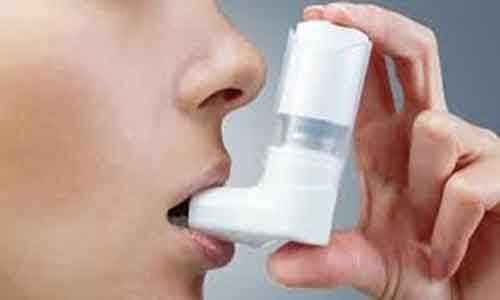- Home
- Medical news & Guidelines
- Anesthesiology
- Cardiology and CTVS
- Critical Care
- Dentistry
- Dermatology
- Diabetes and Endocrinology
- ENT
- Gastroenterology
- Medicine
- Nephrology
- Neurology
- Obstretics-Gynaecology
- Oncology
- Ophthalmology
- Orthopaedics
- Pediatrics-Neonatology
- Psychiatry
- Pulmonology
- Radiology
- Surgery
- Urology
- Laboratory Medicine
- Diet
- Nursing
- Paramedical
- Physiotherapy
- Health news
- Fact Check
- Bone Health Fact Check
- Brain Health Fact Check
- Cancer Related Fact Check
- Child Care Fact Check
- Dental and oral health fact check
- Diabetes and metabolic health fact check
- Diet and Nutrition Fact Check
- Eye and ENT Care Fact Check
- Fitness fact check
- Gut health fact check
- Heart health fact check
- Kidney health fact check
- Medical education fact check
- Men's health fact check
- Respiratory fact check
- Skin and hair care fact check
- Vaccine and Immunization fact check
- Women's health fact check
- AYUSH
- State News
- Andaman and Nicobar Islands
- Andhra Pradesh
- Arunachal Pradesh
- Assam
- Bihar
- Chandigarh
- Chattisgarh
- Dadra and Nagar Haveli
- Daman and Diu
- Delhi
- Goa
- Gujarat
- Haryana
- Himachal Pradesh
- Jammu & Kashmir
- Jharkhand
- Karnataka
- Kerala
- Ladakh
- Lakshadweep
- Madhya Pradesh
- Maharashtra
- Manipur
- Meghalaya
- Mizoram
- Nagaland
- Odisha
- Puducherry
- Punjab
- Rajasthan
- Sikkim
- Tamil Nadu
- Telangana
- Tripura
- Uttar Pradesh
- Uttrakhand
- West Bengal
- Medical Education
- Industry
Vitamin D deficiency increases severity of disease in asthma patients: Study

Saudi Arabia: Vitamin D deficiency or even insufficiency is associated with disease severity in bronchial asthma patients, a recent study in the journal Pulmonary Pharmacology & Therapeutics has found.
The best source of Vitamin D is sunshine. However Foods that provide vitamin D include-Fatty fish, like tuna, mackerel, and salmon, Foods fortified with vitamin D, like some dairy products, orange juice, soy milk, and cereals, Beef liver, Cheese and Egg yolks.Vitamin D deficiency has been declared a public health problem for both adults and children worldwide
According to the study, serum vitamin D levels were significantly reduced in asthma patients. However, this requires further multicenter, larger-scale clinical investigation.
Previous studies have shown vitamin D to affect innate and adaptive immunity processes that impact treatment, severity, and morbidity of acute asthma episodes. Several forms of vitamin D may help modulate immunity including vitamin D3 (D3), vitamin D2 (D2), 25-hydroxyvitamin D3 (25(OH)D3), and 1,25-dihydroxyvitamin D3 (1,25-(OH)2D3).
Considering the above, Sultan S.Al-Thagfan, College of Pharmacy, Taibah University, Al Madinah AlMunawarah Saudi Arabia, and colleagues aimed to assess serum levels of vitamin D derivatives in bronchial asthma patients and their correlation with disease markers.
For this purpose, the researchers enrolled 113 patients. They were divided into two groups -- the first group included 73 asthmatic patients (57 males and 16 females), and the second included 40 healthy adults (31 males and 9 females) as a control group. All patients were evaluated with a careful history and clinical examination, routine laboratory examination, a chest X-ray with a posteroanterior view, and asthma control tests (ACT).
Using ultra-performance liquid chromatography (UPLC) with tandem mass spectrometry, vitamin D serum levels were assessed. Disease markers were assessed and correlated with serum levels of vitamin D forms. Markers included forced expiratory volume in 1 second (FEV1), forced vital capacity (FVC), FEV1/FVC%, peak expiratory flow (PEF), forced expiratory flow25–75% (FEF25–75%), eosinophilic blood count, and total immunoglobulin E (IgE).
Based in the study, the researchers found the following:
- Asthmatic patients had significantly lower serum levels of vitamin D than healthy controls.
- Further, serum vitamin D levels decreased significantly in uncontrolled asthmatic patients than partially controlled and controlled patients. Correlations for 25(OH)D3 and 1,25-(OH) 2D3 were stronger than for D2 and D3.
- There were negative correlations for eosinophilic blood count, total IgE, and ACT.
- Serum levels of all vitamin D forms were reduced in asthmatic patients with moderate to strong correlations with disease severity.
Reference:
The study titled, "Impacts of deficiency in vitamin D derivatives on disease severity in adult bronchial asthma patients," is published in the journal Pulmonary Pharmacology & Therapeutics.
DOI: https://www.sciencedirect.com/science/article/abs/pii/S1094553921000857
Dr Kamal Kant Kohli-MBBS, DTCD- a chest specialist with more than 30 years of practice and a flair for writing clinical articles, Dr Kamal Kant Kohli joined Medical Dialogues as a Chief Editor of Medical News. Besides writing articles, as an editor, he proofreads and verifies all the medical content published on Medical Dialogues including those coming from journals, studies,medical conferences,guidelines etc. Email: drkohli@medicaldialogues.in. Contact no. 011-43720751


